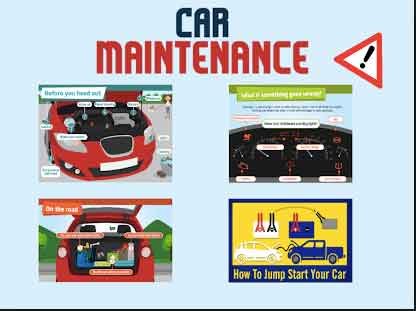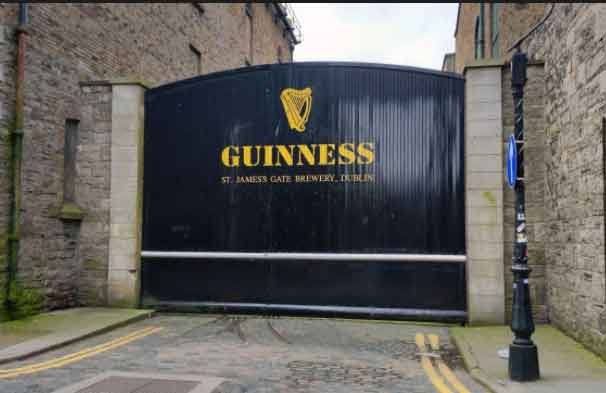Some more quick tips and common errors for Portuguese speakers. This is all new material but is similar to that in my book, you can read a sample of my book here. Word order is a particularly important grammar point and demais/muito and too/very is a common mistake. I also have some tips on verbs taken from my student notes in class.
Word Order
If a Portuguese speaker uses the incorrect word order in a sentence people will still understand you but the other person will know immediately that you are not a native speaker.
Our objective here is to get you speaking more like a native as quickly as possible.
However, this grammar point is particularly important in writing, such as writing emails or reports, as these mistakes are more noticeable.
In general, English word order in positive or affirmative sentences is like this:
| I | will give | you | the book | at work | tomorrow. |
| SUBJECT | VERB | INDIRECT OBJECT | DIRECT OBJECT | PLACE | TIME |
The most common mistakes for Portuguese speakers are with PLACE and TIME.
Often in Portuguese, PLACE and TIME will be moved to the front of the sentence or moved to another position in the sentence. In order to speak or write more like a native they should be placed at the end.
tomorrow at work I will give you the book = I will give you the book at work tomorrow.
next week in Rio I will go to a football game = I will go to a football game in Rio next week.
On Saturday in the office we discussed the project = We discussed the project in the office on Saturday.
I arrived at night at Pampulha airport = I arrived at Pampulha airport at night.
Demais/Muito and Too/Very
In English there is an important difference between these two words.
muito grande = very big
grande demais = too big
too means excessive, and this is often a negative thing.

The cookie/biscuit is too big for the cup. The cookie/biscuit in the image cannot fit into the cup, it is excessive. This is a negative thing.
The cookie is very big. This can be a positive thing, not excessive.

This curry is too spicy = excessive, I can’t eat it!
This curry is very spicy = it is spicy/hot but I can eat it or I might even like it!
The restaurant is too busy = excessive, there isn’t a free table, or there is excessive noise.
The restaurant is very busy = we have a table but there are a lot of people, it has a good ambience or atmosphere.
And some helpful tips on some verbs in English
crecer = to grow and to grow up
We have two words for crecer in English.
To grow up is only used in very specific situations. Only people grow up. It means to mature, amadurecer in Portuguese.
or to describe where you live as a child until you are an adult.
For example:
I grew up in Ireland.
Children grow up so fast.
Other things grow, to get bigger physically, for example:
The grass grows up in the garden = The grass grows in the garden.
The economy grew up last year = The economy grew last year.
Tensions are growing up in the Middle East = Tensions are growing in the Middle East.
The puppy grew up into a big dog = The puppy grew into a big dog.
For an explanation of into see my 2016 book or my 2020 video course which has 40% more content than the 2016 eBook.
However people can also grow physically.
He has grown a lot means he is a lot taller now than he was before.
Teenage boys often grow a lot during the school summer holidays, this means they become taller.
Babies grow rapidly when they are young means they get bigger physically very quickly.
to keep, to maintain
These all have a similar meaning and the differences are very subtle. It is best to give some examples along with one strategy to help you.
to keep
With to keep the key idea is power
Messi stays with the ball very well = Messi keeps the ball very well.
Messi is using his own power here, therefore we use keep.
I will stay trying to fix the problem = I will keep trying to fix the problem.
Again I am using my own power to make a decision to try and fix the problem.
I will keep my phone with me means I will use my power to have my phone with me. It is my decision.
Keep watching! Use your own power, your decision to remain or stay watching something on television for example.
to maintain
to maintain is very similar to Portuguese manter, it is more consistent and is something you do regularly.
I maintain my garden.
The maintenance team fixes problems in the building.
I like to maintain my car.

COMMON MISTAKES
You maintain your luggage with you at the airport = You keep your luggage with you at the airport.
You use your own power here, it isn’t something you do regularly.
Or another related example in the image below:

Keep your valuables safe, again you are using your own power here to ensure the valuables are safe.
Maintain your valuables safe is an error, it is not something done over a long time.
They remained complaining = They kept complaining.
They used their power to complain, their decision, they continued to complain using their power.
I held the baby to stay her calm = I held the baby to keep her calm, my power helped calm the baby.
I maintain my bankcards with me = I keep my bankcards with me. Again you are using your power here.
We used iron bars to maintain the shelf in position = We used iron bars to keep the shelf in position. The power of the iron bars helped to fix the shelf in position.
Note: Ficar does mean to stay but very often it means to be in English. It is a very important verb and is covered thoroughly in my 2016 book and also in my 2020 video course.
go ahead and go straightahead
Go straight ahead is a direction, go straight ahead, then turn left at the traffic lights.
Go ahead! means please continue!
If you interrupt someone you might say “Sorry, go ahead!” to let the other person continue.
A similar sounding word straightforward means not complicated
Changing a light bulb is straightforward.
Sometimes legal documents are not straightforward.
Using the present perfect correctly in English is not straightforward.
to recommend and to suggest
Let’s show the subtle difference between these two verbs that can sometimes be confusing.
indicar = to indicate = to recommend
I recommend has a strong meaning, I know that something is good.
I recommend the pizza means I know the pizza is good and it has a strong meaning.
sugerir = to suggest
I suggest is weaker, I might be guessing, I am not certain.
I suggest you try the pizza means I am not 100% sure it is good but it probably is.
to strengthen and to weaken
to strengthen means to become stronger or to make stronger.
The engineers strengthened the bridge means the engineers made the bridge stronger.
He lifts weights to strengthen his arms means he lifts weights to make his arms stronger.
to weaken is the opposite of to strengthen.
The boxer weakened his opponent by punching him to the body.
The old wooden roof has weakened over the years because of the rain.
These verbs are used a lot in Business English.
We need to strengthen our business proposal.
This news will weaken his negotiating position.
Especially when talking about money and currency.
The euro strengthened against the dollar today.
The Japanese yen weakened against the pound in early trading.
The Brazilian real continued to strengthen against the dollar today.
estacionar = to park and to dock
estacionar = to park
This is a common verb, however, we only use it with land vehicles.
He is parking the car.
I parked my truck.
With a boat or a ship like a ferry we use a separate verb to dock.
The ferry docked at 9pm.
The ocean liner docked in Dublin for 24 hours.
From the verb to dock we get docklands an area in many major cities. This is the area where ships dock, often they had many derelict buildings but in recent years have been rebuilt with new buildings as they have a great location, for example, the docklands in Dublin and the docklands in London.
sequestrar = to kidnap and to hijack
You kidnap a person. You take the person and hold them against their will. You usually ask for a ransom, resgate in Portuguese.
For example:
FARC kidnapped many people over the years.
Natascha Kampusch was kidnapped and held captive for many years in Austria.
John Paul Getty’s son was kidnapped and held for ransom, this is shown in the movie “All the Money in the World”.
You hijack a plane, bus, train etc or even something like a TV station.
The documentary “Bus 174”, or “Ônibus 174” in Portuguese, was about the hijacking of a bus in Rio.
On September 11th, 2001 4 planes were hijacked in the USA.
A hijacker is a person.
Most of the September 11th hijackers came from Saudi Arabia.
fazer cerveja = to make beer = to brew beer
to make beer = to brew beer
If you say to make beer people will understand but the correct verb is to brew beer.
The factory where beer is brewed is a brewery.
The Guinness Brewery is the most popular tourist destination in Dublin.

Artisan beers are more usually called craft beer in English, but people will understand artisan beer.
There are a huge number of micro-breweries appearing in Ireland and around the world, small business trying to compete with world-renowned brands such as Heineken or Budweiser. and discover here about how to learn English from scratch.
You can discover here the difference between a professor and a teacher and discover here about how to learn English from scratch.
Or discover about the origin of the English language in here.
I hope you found this useful, please share with your friends and you can leave a comment below.
